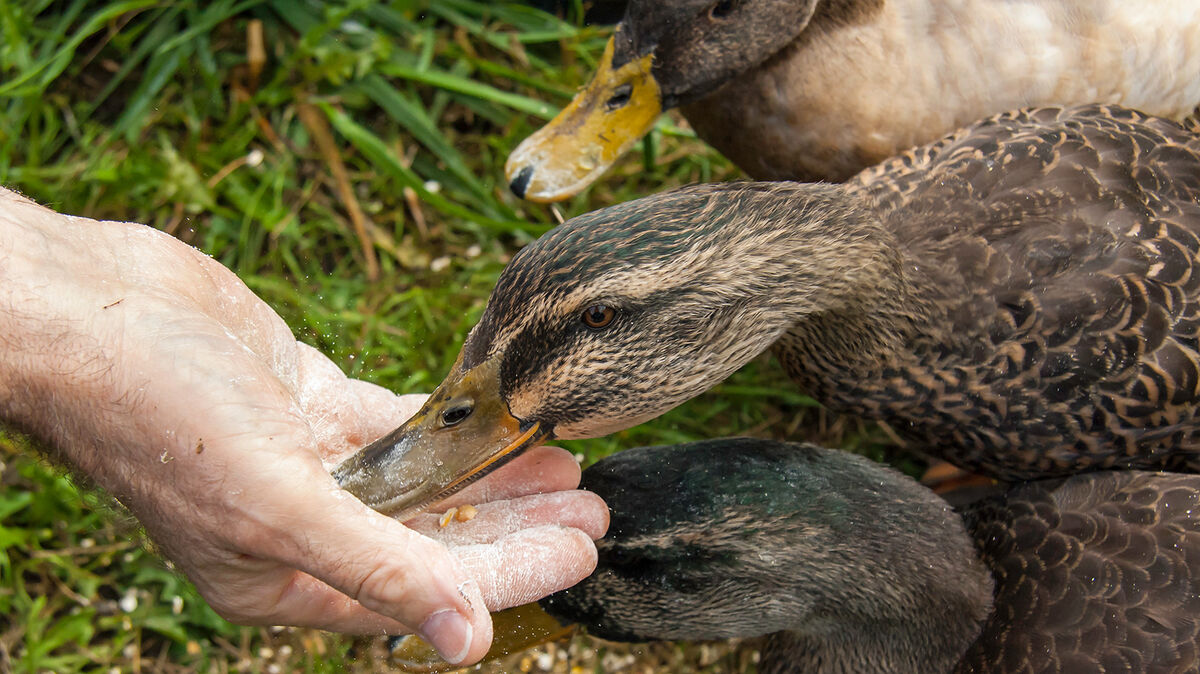
Habituation is a learned behavior in which an individual's response to stimuli decreases over time. Basically, they get used to something happening, and no longer respond to it. Keep reading for many examples of habituation that occur in both animal and human behavior every day.
Examples of Animal Habituation
Animals always survey their surroundings for potential threats. Sometimes the threat is real, and other times, there’s nothing for them to worry about. Many times, the perceived threat is a friendly human in their environment. The animals then become habituated to the perceived threat and continue to live as normal.
Some habituation examples in the animal world are:
- A turtle draws its head back into its shell when its shell is touched. After being touched repeatedly, the turtle realizes it's not in danger and no longer hides.
- Prairie dogs retreat into their holes at the sound of approaching human footsteps. When this occurs many times and the prairie dogs know the footsteps are not a threat, they no longer retreat at the sound of footsteps.
- An abused cat is very wary of human touch, but once it realizes that its new owners pose no threat, it becomes used to petting.
- A caged hamster becomes frightened when a person taps on its cage; however, when it realizes that the taps pose it no danger, it becomes used to hearing them.
- Ducks in a small pond at a park are scared of people and fly away when approached. They become used to humans over time as they interact with them, and as people feed them, causing them to realize that the humans are not a threat.
- A newly-purchased pet cockatiel is initially scared of its owner's hand, and backs away or bites when its owner attempts to take it out of its cage. After a few days, the bird becomes used to the owner and readily hops onto his hand, realizing the owner does not pose a threat.
Habituating an animal to human presence is an important step in domestication. However, it can have unforeseen costs for wild animals who grow to depend on human presence for their food. When the humans are gone, these animals have not adopted skills to fend for themselves, and their habituation can lead to starvation.
Examples of Everyday Habituation in Humans
When you’re told to “get used to it,” you’re really being told to habituate to something in your environment. As picky as we are, humans are as talented as animals when it comes to gradually lowering their response to a new stimulus. Some examples of human behavioral habituation include:
- When a couple moves into a new house by some train tracks, they find that the sound of the trains keeps them awake at night. After a while, they become desensitized to the noise and are able to ignore it.
- When you put on a pair of shorts for the first time over the summer, the sensation of air on your legs feels different. Once you've worn them for a while, however, you become used to the sensation and stop noticing it.
- Certain noises in a house cause a newborn baby to cry, until they become desensitized to the noises and they no longer frighten the child.
- An individual purchases a new clock, but initially finds it difficult to concentrate while working in the room because of the clock's ticking. A few days pass, and the person is able to "tune out" the clock due to habituation.
- The smell of a chocolate factory initially bothers a person who gets a job near one. One year later, the individual doesn't even notice the smell unless she thinks about it.
- The creaking of an old hotel initially irritates a businessman and keeps him from sleeping; however, due to habituation, each night it bothers him less and less until finally he does not notice the creaking sound at all.
- A student frantically finishes his homework every night because it’s due the next morning. But when his teacher doesn’t collect it, the student stops doing the homework. He no longer worries about the consequences.
- A neat person marries someone who doesn’t clean up after themselves. This bothers the neat person, but after a while, they don’t notice the mess anymore.
In all of these cases, the humans are responding to a stimulus as an annoyance rather than a threat. But like their animal counterparts, humans are able to habituate in their environment. They can successfully ignore or tune out stimuli that had previously been disruptive.

Drug Habituation
Another context in which you might find the word habituation is when discussing a body’s response to a substance. Scientists and doctors use this term to describe a patient’s psychological dependence to a substance, such as drugs or alcohol. The more they use the substance, the less of a threat they perceive, so they use it without concern.
However, it’s not meant to describe the body’s biological dependence, which is known as addiction. The term drug habituation is outdated in the medical world, and has largely been replaced with drug dependency or substance dependency as scientists better understand the biological and psychological effects of substance abuse.
Psychology Helps Us Understand the World
Now you have seen plenty of examples of habituation and you can recognize habituation in the world around you. Habituation, however, is only one type of learned behavior. Check out these examples of operant conditioning to see how positive or negative reinforcement can establish (or eliminate) a desired behavior.